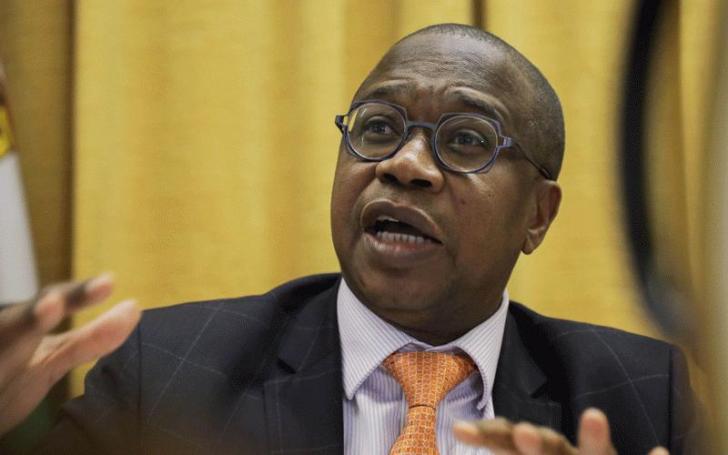News / National
Zimbabwe extends duty-free import window for bus operators
17 Apr 2025 at 07:31hrs | Views

The Government has extended the duty-free bus import facility to April 30, 2025, in a move aimed at further revitalising Zimbabwe's public transport system and ensuring affordable, reliable services for the commuting public.
The duty-free window, which was initially set to end on February 14, 2025, is part of a broader policy intervention introduced to address the country's transport challenges and modernise public service vehicle fleets. The extension is now formalised through Statutory Instrument published in an Extraordinary Government Gazette this week by the Minister of Finance, Economic Development, and Investment Promotion, Professor Mthuli Ncube.
"The Customs and Excise (Suspension) Regulations, 2003, published in Statutory Instrument 257 of 2003, are amended in section 9HH by the deletion of the words ‘14th February, 2025' and the substitution of ‘30th April, 2025'," reads the notice.
The facility, introduced in 2022, has enabled the importation of over 1,500 buses to date, allowing transport operators to replenish and expand their fleets without the burden of import taxes. The programme was initially designed as a one-year grace period for registered public transporters, aimed at improving service delivery and making travel more accessible and affordable for the public.
Operators welcomed the extension, saying it provides much-needed breathing space to upgrade fleets while contributing to the formalisation and professionalisation of the sector.
In addition, stakeholders have applauded Government's complementary decision to remove customs duty on Semi-Knocked Down (SKD) kits for buses and trucks, a measure designed to stimulate local assembly and support the domestic vehicle manufacturing industry.
In his 2025 national budget, Prof Ncube underscored the strategic importance of local vehicle assembly under the National Development Strategy 1 (NDS1), describing it as a key component for industrial development, job creation, and local value chain growth.
The extension of the duty-free window also aligns with broader Government efforts to cushion the commuting public against high transport costs, which have often been exacerbated by unregulated and unregistered operators.
To that end, the Zimbabwe United Passenger Company (ZUPCO), a state-owned entity, has already acquired and distributed hundreds of buses across the country in recent years to provide affordable alternatives and promote order in urban and rural transit systems.
Government officials have maintained that continued investment in the transport sector, coupled with supportive import policies, will create a more sustainable, safe, and modern public transportation network.
The latest extension gives transport operators more time to capitalise on the duty-free opportunity, and is expected to further stabilise the transport market, reduce fares, and bolster Zimbabwe's economic development objectives.
The duty-free window, which was initially set to end on February 14, 2025, is part of a broader policy intervention introduced to address the country's transport challenges and modernise public service vehicle fleets. The extension is now formalised through Statutory Instrument published in an Extraordinary Government Gazette this week by the Minister of Finance, Economic Development, and Investment Promotion, Professor Mthuli Ncube.
"The Customs and Excise (Suspension) Regulations, 2003, published in Statutory Instrument 257 of 2003, are amended in section 9HH by the deletion of the words ‘14th February, 2025' and the substitution of ‘30th April, 2025'," reads the notice.
The facility, introduced in 2022, has enabled the importation of over 1,500 buses to date, allowing transport operators to replenish and expand their fleets without the burden of import taxes. The programme was initially designed as a one-year grace period for registered public transporters, aimed at improving service delivery and making travel more accessible and affordable for the public.
Operators welcomed the extension, saying it provides much-needed breathing space to upgrade fleets while contributing to the formalisation and professionalisation of the sector.
In his 2025 national budget, Prof Ncube underscored the strategic importance of local vehicle assembly under the National Development Strategy 1 (NDS1), describing it as a key component for industrial development, job creation, and local value chain growth.
The extension of the duty-free window also aligns with broader Government efforts to cushion the commuting public against high transport costs, which have often been exacerbated by unregulated and unregistered operators.
To that end, the Zimbabwe United Passenger Company (ZUPCO), a state-owned entity, has already acquired and distributed hundreds of buses across the country in recent years to provide affordable alternatives and promote order in urban and rural transit systems.
Government officials have maintained that continued investment in the transport sector, coupled with supportive import policies, will create a more sustainable, safe, and modern public transportation network.
The latest extension gives transport operators more time to capitalise on the duty-free opportunity, and is expected to further stabilise the transport market, reduce fares, and bolster Zimbabwe's economic development objectives.
Source - The Herald


























